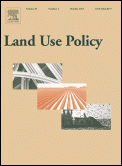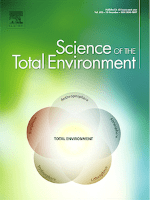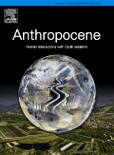
Regional Environmental Change
metrics 2024
Transforming Research into Action for Regional Resilience
Introduction
Regional Environmental Change, published by SPRINGER HEIDELBERG, is a leading journal dedicated to the critical field of Environmental Science, specifically focusing on the global and planetary changes affecting our regional environments. Since its inception in 2005 and continuing through 2024, the journal has been a pivotal platform for disseminating cutting-edge research, insights, and methodologies that address pressing environmental issues. With an impressive Scopus rank, placing it in the top 30% of journals in its category, Regional Environmental Change (ISSN: 1436-3798; E-ISSN: 1436-378X) showcases high-quality academic articles that engage with the multifaceted impacts of environmental shifts, providing researchers, professionals, and students with vital knowledge and data. Although the journal does not currently offer Open Access, it remains a crucial resource for those committed to understanding and mitigating the effects of environmental change on regional ecosystems and communities.
Metrics 2024
 1.03
1.03 3.40
3.40 4.20
4.20 92
92Metrics History
Rank 2024
Scopus
IF (Web Of Science)
JCI (Web Of Science)
Quartile History
Similar Journals

Revista Brasileira de Ciencias Ambientais
Unveiling New Perspectives in Environmental SustainabilityRevista Brasileira de Ciências Ambientais (ISSN: 1808-4524, E-ISSN: 2176-9478) is a prestigious open-access journal published by the Associação Brasileira de Engenharia Sanitária e Ambiental. Since its inception in 2005, this journal has played a vital role in disseminating innovative research and practical insights in the field of environmental sciences, focusing on both theoretical and applied aspects affecting Brazil and beyond. With a commitment to fostering knowledge exchange among researchers, policymakers, and practitioners, it addresses crucial topics such as environmental management, sustainability, and public health. The journal is housed in Rio de Janeiro, Brazil, and although specific metrics like H-Index or category quartiles are currently unavailable, its open-access model ensures wide visibility and accessibility, catering to a diverse audience of professionals and students passionate about protecting and enhancing our environmental systems.

Present Environment and Sustainable Development
Advancing sustainability through innovative research.Present Environment and Sustainable Development, published by ALEXANDRU IOAN CUZA UNIVERSITY PRESS, is a prominent open-access journal dedicated to advancing knowledge in the field of environmental science and sustainable development. Since its inception in 2014, the journal has provided a platform for researchers, professionals, and students to disseminate transformative ideas and innovative research aimed at addressing crucial environmental challenges. With its ISSN 1843-5971 and E-ISSN 2284-7820, it emphasizes the necessity of sustainable practices in contemporary society, facilitating interdisciplinary approaches that unite various fields, including ecology, policy, and socio-economic studies. Based in Iasi, Romania, this journal plays a vital role in fostering international collaboration and dialogue on sustainability, making it an essential resource for anyone committed to understanding and improving the environment for future generations.

LAND USE POLICY
Transforming Land Use Through Research and PolicyLAND USE POLICY, published by ELSEVIER SCI LTD, is a premier academic journal dedicated to advancing the study of land use issues and policies, with a particular focus on sustainable management and conservation practices. Since its inception in 1984, this journal has established itself as an influential platform in the fields of Forestry, Geography, Planning and Development, and Environmental Science, consistently achieving a Q1 category ranking across various disciplines. With an impressive impact factor and recognition as a top-tier source (e.g., ranking #18/821 in Geography and Planning), it serves as a critical resource for researchers, practitioners, and policy-makers looking to address complex land use challenges. Although it does not offer open access, the journal's articles are widely accessible through institutional subscriptions, enhancing its reach. Researchers and students can find valuable insights into innovative policies and methodologies that promote sustainable land management, making LAND USE POLICY essential reading for anyone engaged in environmental studies and policy development.

All Earth
Championing Open Access to Earth Science InsightsAll Earth is an esteemed open-access journal published by Taylor & Francis Ltd, dedicated to multidisciplinary research in the fields of Earth and Planetary Sciences, Global and Planetary Change, as well as Management, Monitoring, Policy, and Law. Since its inception in 2021, All Earth has swiftly positioned itself in the academic community, achieving notable rankings such as Q2 in Earth and Planetary Sciences and Q3 in related fields, showcasing its commitment to high-quality interdisciplinary scholarship. Researchers and professionals can benefit from its accessible content, which contributes to the ongoing discourse on critical environmental issues and innovative solutions for sustainable development. The journal is based in the United Kingdom and continues to be a vital source of information and inspiration for students and scholars aiming to tackle the pressing challenges of our planet through rigorous scientific inquiry and policy analysis.

Trees Forests and People
Bridging Ecosystems and Communities for a Greener FutureTrees, Forests and People is an esteemed peer-reviewed journal published by Elsevier that commenced its journey in 2020 and focuses on the intricate relationships between trees, forests, and human communities. With its E-ISSN of 2666-7193, this journal serves as a vital platform for presenting cutting-edge research in disciplines such as forestry, environmental science, and management. Recognized for its impact within the academic community, it has achieved a prestigious Q1 ranking in both Economics, Econometrics and Finance (Miscellaneous) and Forestry, alongside a Q2 ranking in Management, Monitoring, Policy and Law as of 2023. Its Scopus rankings indicate robust positioning in various fields, appealing to a diverse audience of researchers, professionals, and policy-makers engaged in sustainable forest management and ecosystem services. By offering open access options, the journal ensures that critical findings are readily available to a global audience, fostering knowledge sharing and collaborative efforts aimed at addressing the pressing challenges in forest conservation and management.

Carpathian Journal of Earth and Environmental Sciences
Championing High-Quality Research in Earth SciencesCarpathian Journal of Earth and Environmental Sciences is a distinguished academic journal dedicated to advancing the interdisciplinary field of Earth and environmental sciences. Published by the Carpathian Association for Environment and Earth Sciences, this journal plays a pivotal role in disseminating high-quality research focused on the dynamic interactions between geological processes and environmental changes. With an ISSN of 1842-4090 and an E-ISSN of 1844-489X, the journal is indexed in Scopus and holds an esteemed Q3 quartile ranking in both Earth and Planetary Sciences and Environmental Science categories as of 2023. Since its inception in 2008, the Carpathian Journal has provided an open access platform for researchers, professionals, and students to share insights, foster collaboration, and engage in critical discussions on pressing environmental issues. By continuously contributing to the body of knowledge in this field, the journal not only enhances academic discourse but also promotes sustainable environmental practices across Romania and beyond.

Science of The Total Environment
Innovative Research for Global Environmental ChallengesScience of The Total Environment, an esteemed journal published by Elsevier, holds a significant position in the field of environmental science, encompassing critical areas such as Environmental Chemistry, Environmental Engineering, Pollution, and Waste Management and Disposal. With an impressive impact factor and ranked in the Q1 quartile across its categories for 2023, the journal is recognized for its high-quality research output and contribution to environmental sustainability. Operating from its base in the Netherlands, the journal has been a valuable resource since its inception in 1972, welcoming innovative studies that address complex environmental challenges. Its notable rankings—such as Rank #9 in both Environmental Sciences and Pollution—underscore its relevance and influence in the academic community. Although the journal currently does not provide an open access option, the robust findings and discussions presented within its pages continue to foster a deeper understanding of environmental issues. Science of The Total Environment is an essential platform for researchers, professionals, and students dedicated to advancing knowledge and solutions in the rapidly evolving field of environmental science.

Anthropocene
Advancing Interdisciplinary Insights for a Sustainable FutureAnthropocene, published by Elsevier Science Ltd, is a leading journal dedicated to the interdisciplinary study of the Anthropocene epoch, focusing on the profound impacts of human activity on Earth systems and ecosystems. With an impressive impact factor reflected in its Q1 rankings in Earth and Planetary Sciences and Ecology, as well as a solid standing in Global and Planetary Change, this journal is a vital resource for researchers, professionals, and students striving to understand and address the pressing environmental challenges of our time. Since its inception in 2013, the journal has been committed to publishing high-quality, peer-reviewed articles that stimulate critical discourse and inspire innovative solutions to complex ecological issues. Although not an open-access journal, Anthropocene provides extensive access options through institutional subscriptions, making its significant research readily available to the academic community. Based in the United Kingdom, the journal serves as a cornerstone for scholarship in a rapidly evolving field, bridging gaps across disciplines and encouraging interdisciplinary collaboration for a sustainable future.

Geographica Pannonica
Unveiling Insights into Earth and SocietyGeographica Pannonica is a premier, open-access journal dedicated to the various dimensions of geography, atmospheric sciences, geology, and related fields. Published by the University of Novi Sad's Faculty of Natural Sciences and Mathematics, this Serbian journal has been a vital platform for scholarly discourse since its inception, with an open-access policy established in 2010 to enhance the dissemination of research findings. Covering a spectrum of topics from Earth-surface processes to tourism management, the journal has achieved notable rankings, reflecting its commitment to impactful research—ranking in the Q3 quartile across multiple categories in 2023. Researchers, professionals, and students are encouraged to engage with the latest articles that contribute to advancing our understanding of geographical phenomena and sustainability challenges, making Geographica Pannonica an essential resource for the global academic community.

Geography and Natural Resources
Transforming Insights into Action for Global SustainabilityGeography and Natural Resources is a vital academic journal published by MAIK NAUKA/INTERPERIODICA/SPRINGER, focusing on diverse aspects of geography, natural resource management, and environmental sciences. With its ISSN 1875-3728 and E-ISSN 1875-371X, the journal serves as a platform for scholars and researchers to disseminate their findings in a rapidly evolving field. The journal holds a respectable Q3 ranking in the categories of Earth-Surface Processes and Geography, Planning and Development, as well as a Q4 ranking in Management, Monitoring, Policy, and Law, reflecting its commitment to quality research. Although it is not an open-access journal, it offers valuable insights and impactful articles tailored for professionals and academics interested in the intersection of human and environmental systems. By bridging theoretical and practical applications, Geography and Natural Resources plays a crucial role in guiding policies and enhancing understanding of sustainable development from 2008 to 2024 and beyond, making it an indispensable resource for the global scholarly community.